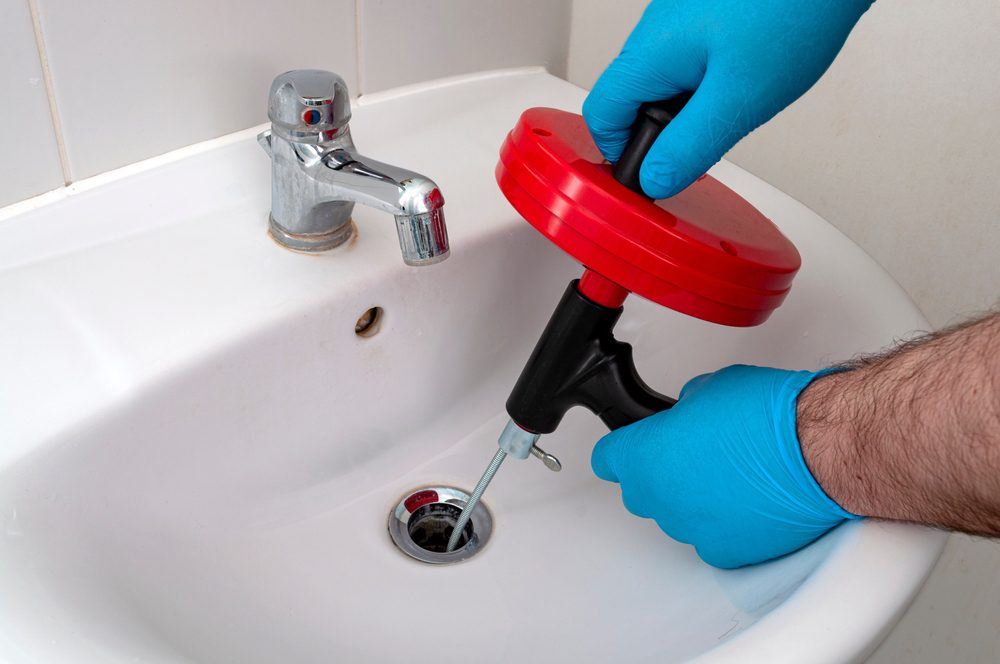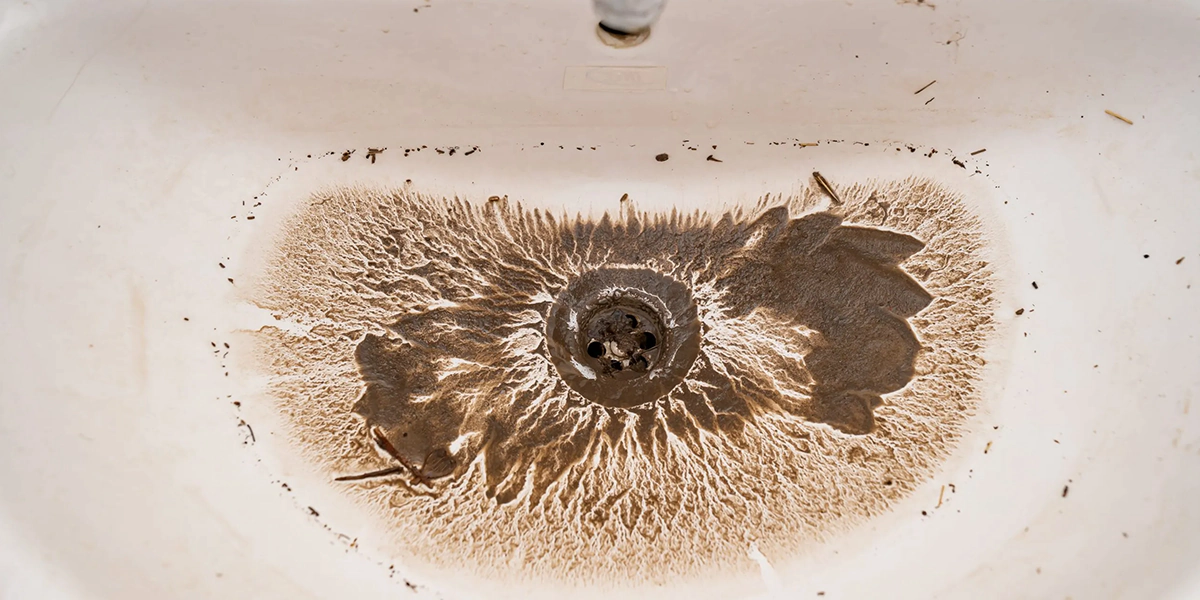Best Tips For Resolving A Slow-Draining Sink Fast
Best Tips For Resolving A Slow-Draining Sink Fast
Blog Article
This post down below in relation to Solved! How to Fix a Slow Sink Drain is amazingly remarkable. You should read it.

Introduction
We have actually all been there: You're cleaning your teeth or cleaning your hands, and you see the water merging in the sink. Instead of quickly swirling away, it lingers, transforming your once-refreshing morning routine into a mini swamp scene. A slow-draining sink isn't just irritating; it's usually a sign of larger plumbing problems lurking under the surface area. Fortunately is that most slow-draining sinks can be taken care of with a little know-how, a couple of basic tools, and some perseverance. Prepared to tackle this task head-on? Let's roll up our sleeves and dive right in.
Recognizing the Root Causes Of a Slow-Draining Sink
Prior to you begin poking around in your pipes, it assists to understand what could be causing the slowdown. Comprehending the origin makes it easier to choose the best repair.
Typical Culprits Behind Slow Drainage
So, what's clogging things up? Generally, it's a mix of everyday debris-- believe hair, soap scum, tooth paste deposit, and remaining food particles. With time, these little bits gather and hold on to the pipeline walls, progressively tightening the passage and making it harder for water to go through. In many cases, mineral deposits from difficult water can additionally include in the crud, creating the excellent tornado for persistent obstructions.
When is it Time to Act?
If you notice the water draining slower than common, it's an excellent idea to interfere quicker rather than later. Waiting too long can result in finish blockages, unpleasant smells, or perhaps pipe damage. If the water takes greater than a couple of seconds to clean out after shutting off the tap, consider it a warning and prepare to place on your do it yourself hat.
Devices and Products You'll Require
The right tools make all the distinction. Fortunately, you won't require a fully equipped plumbing professional's van to do the job.
Necessary Tools for Do It Yourself Fixes
A plunger is your go-to starting factor. A tiny, sink-sized bettor produces suction that can displace small blockages. For more persistent clogs, a drainpipe snake (occasionally called a plumbing's auger) functions wonders. A pair of handwear covers, a flashlight, and maybe a set of protective goggles are additionally handy.
Advised Cleansing Solutions
Moderate meal soap and warm water can assist break down oily build-up. A combination of cooking soft drink and vinegar is a reliable natural home remedy, and enzymatic cleaners supply an even more green approach. Keep chemical drainpipe cleansers as a last hope, as they can be rough on your pipes.
Security First: Safety Measures and Prep work
Before you launch into unclogging mode, think of safety. You're dealing with potentially unclean water and particles, so slip on a pair of handwear covers. If you're making use of chemical cleaners, make certain the room is well-ventilated and comply with the directions on the label.
Protective Equipment and Work Area Arrangement
Put down some old towels or rags around the sink location to catch splashes. Clear away any kind of things that could enter your method, like soap dispensers or toothbrush owners. Make sure you have excellent illumination-- grab a flashlight if required.
Step-by-Step Guide to Repairing a Slow-Draining Sink
Currently, let's get into the nitty-gritty. This detailed process will certainly guide you with easy strategies to restore your sink's drain.
Action 1: Remove and Tidy the Stopper
Commonly, the stopper (that small plug you push down to obstruct water) is the first perpetrator. Remove it very carefully and wipe any kind of hair or gunk caught around its base. Rinse it completely before putting it back in place.
Step 2: Use a Plunger to Dislodge Particles
Got that bettor ready? Placement it over the drainpipe and provide it a few firm pumps. The idea is to create suction that can loosen any kind of clog. If you see littles particles floating up, you're on the right track.
Action 3: Try a Drain Serpent or Cable Hanger
If the bettor does not work, it's time to draw out the drainpipe serpent. Gently feed it into the drain and spin as you go. You may feel some resistance-- that's likely the blockage. Keep turning and pulling till you eliminate the obstruction. If you do not have a drain snake, a corrected cable wall mount can work in a pinch.
Step 4: Apply a Do It Yourself Drainpipe Cleanser
A natural cleaner made from cooking soft drink and vinegar can break down residual gunk. Put half a mug of cooking soda into the drainpipe, followed by half a mug of vinegar. Allow it fizz for around 15 mins, then flush with hot water. This chemical reaction usually does wonders for minor obstructions.
Step 5: Rebuild and Test the Sink
Put whatever back with each other and run the tap. Does the water currently swirl away at a respectable speed? If yes, offer on your own a pat on the back. Otherwise, don't despair-- there are still a few even more tricks up your sleeve.
Alternative Approaches for Stubborn Clogs
Not all obstructions are created equivalent. If your sink still rejects to cooperate, think about these alternative solutions.
Baking Soda and Vinegar Approach
We currently touched on this, yet it deserves noting again. This mild, eco-friendly technique is safer than chemical cleansers and commonly quite reliable.
Chemical Drain Cleaners
Enzyme-based cleansers make use of natural bacteria to digest raw material. They're an exceptional selection if you're wanting to prevent rough chemicals. Just keep in mind, they might take a bit longer to function their magic.
Chemical Drainpipe Cleansers: Benefits And Drawbacks
Chemical cleaners can blast with hard obstructions quick, yet they're not without downsides. They can generate warm and fumes, damage pipes if utilized exceedingly, and posture ecological risks. Use them moderately, and constantly comply with the instructions meticulously.
Safety Nets to Keep Your Sink Flowing
Prevention is the best treatment. By taking on a couple of easy habits, you can maintain your sink from decreasing in the first place.
Regular Cleansing Practices
Wipe down the sink basin and fixture location regularly. Get rid of hair or food particles prior to they have a possibility to wash down the drain.
Staying Clear Of Harmful Compounds Down The Tubes
Reconsider prior to discarding coffee premises, oil, or coarse veggie scraps down the sink. These perpetrators cling to pipe walls, producing blockages with time.
Routine Maintenance Checks
Arrange a quick month-to-month examination. Run hot water via the sink for a couple of mins, taking note of the circulation. If it seems slow, act quick before it ends up being a full-blown clog.
When to Call a Professional Plumbing
In some cases, regardless of exactly how difficult you attempt, that obstruct simply will not move. That's when it's time to bring in the pros.
Signs That Indicate a More Serious Concern
If your sink drains slowly regardless of several efforts, or if you observe water supporting in other components (like your shower or bathroom), you might have an extra severe pipes problem prowling deeper in the system.
Balancing Do It Yourself Initiatives with Expert Assistance
While do it yourself can save you money and use a sense of achievement, there's no embarassment in calling an expert. A specialist plumbing professional can assess your entire pipes setup, making sure there's no underlying damages or lasting problem that might cost you more later on.
Contrasting Prices and Long-Term Solutions
Prior to deciding, consider the big picture. A low-cost, quick fix may solve the problem briefly, however buying an extra irreversible option might save you money and stress and anxiety in the future.
Evaluating the Expenses of Do It Yourself vs. Professional Solutions
DIY fixes frequently set you back little more than the rate of a plunger or a container of baking soda. Specialist solutions, on the other hand, come with a price but might protect against repetitive issues and pricey repairs later.
Purchasing Quality Fixtures and Upgrades
If your sink's design contributes to constant clogs, it might be worth updating to higher-quality components or altering the plumbing layout. Consider this a financial investment in your house's functionality and comfort.
Conclusion
A slow-draining sink can seem like a small irritation, yet it's often an indicator that your pipes requires a little tender loving care. By understanding the root causes, utilizing the right tools and strategies, and devoting to basic safety nets, you can maintain your sink moving easily. And when all else falls short, never ever think twice to call in a professional-- your home's pipes deserves the financial investment in care and upkeep.
Three Common Ways to Fix a Slow Drain
Baking Soda Method
Boil a full pot of water. Measure out cup of baking soda and pour it down the drain. Then take cup of the magical cleansing substance known as white vinegar and drop that down there too. Allow the mixture to fizz in the drain for five minutes as the vinegar and baking soda combine. Now dump in that whole pot of boiling water. This combination of cleaning substances should clear out anything that is causing your sink to drain slowly. If it doesn t...
Zip-It
If the baking soda method doesn t clear out your drain, it may be because a significant amount of hair and/or other debris has collected there and you need to remove it. Purchase a Zip-It tool at any home improvement or hardware store and insert it into your drain. It will catch any collected hair or debris that s blocking the flow of water. Pull it out. If it s got a big clump of hair, etc. on the end, you ve probably got your culprit.
Drain Cleaner
If these methods don t work, there is the standard drain cleaner that you can also buy in a hardware store or even your local grocery store. It s better if you can use a household solution, but these drain cleaners often work in a pinch. They re very simple to use. You generally just dump them in your drain and wait. If even this method is not effective, it may be time to call the plumber.
https://www.mrrooter.com/oneida/about-us/blog/2017/july/three-common-ways-to-fix-a-slow-drain/

I recently found that blog entry on Solved! How to Fix a Slow Sink Drain when doing a search on the internet. For those who enjoyed our page please do not forget to pass it around. We take joy in reading our article about Three Common Ways to Fix a Slow Drain.
Request Appointment Report this page